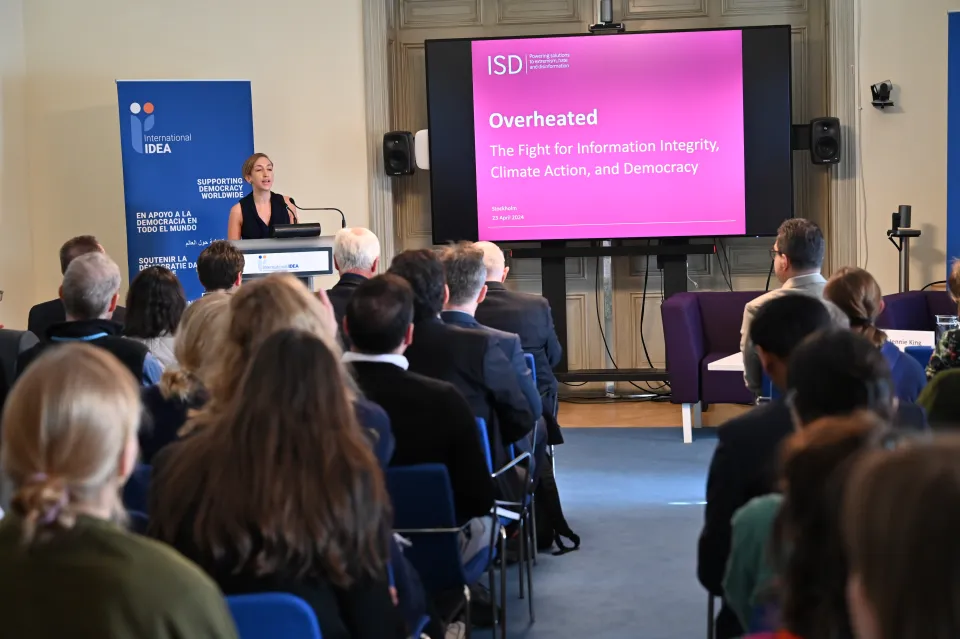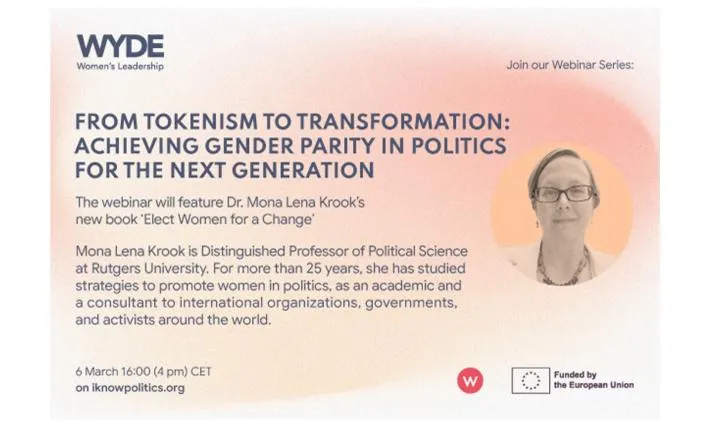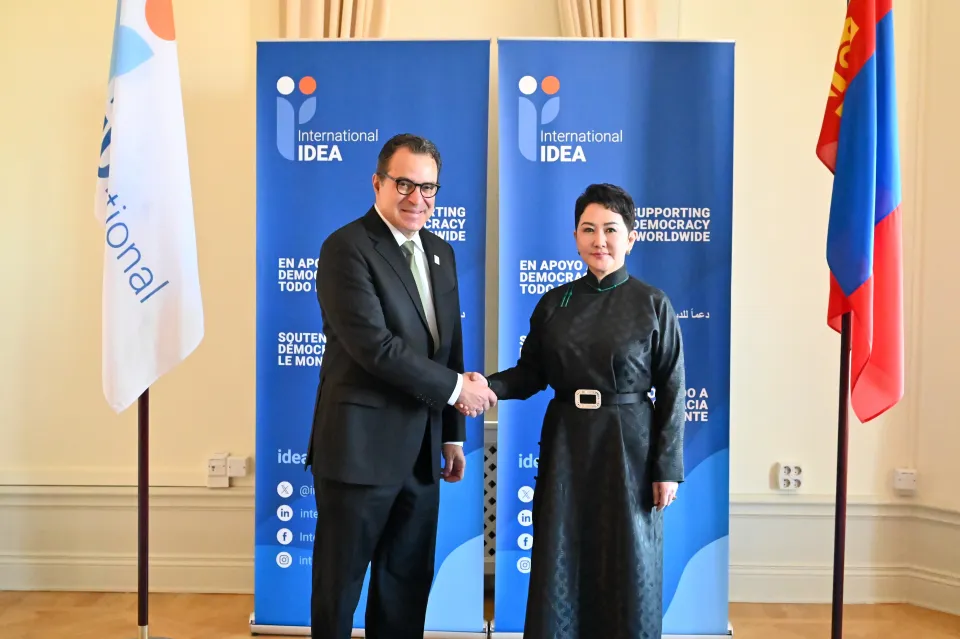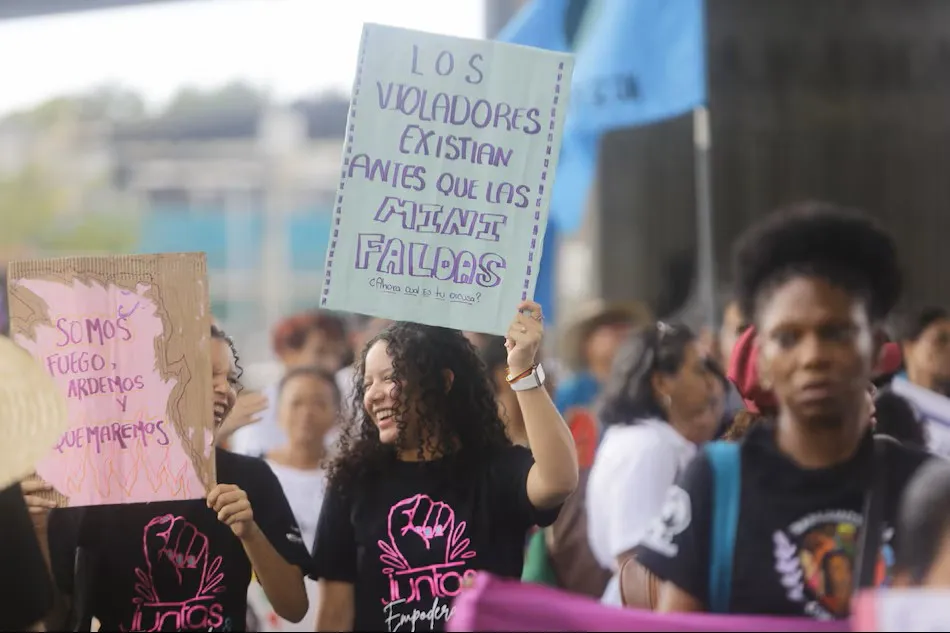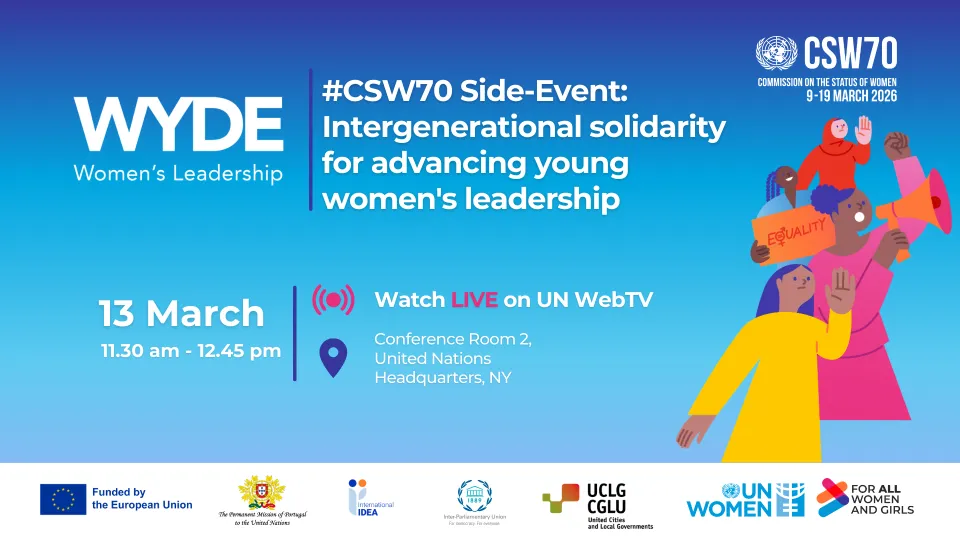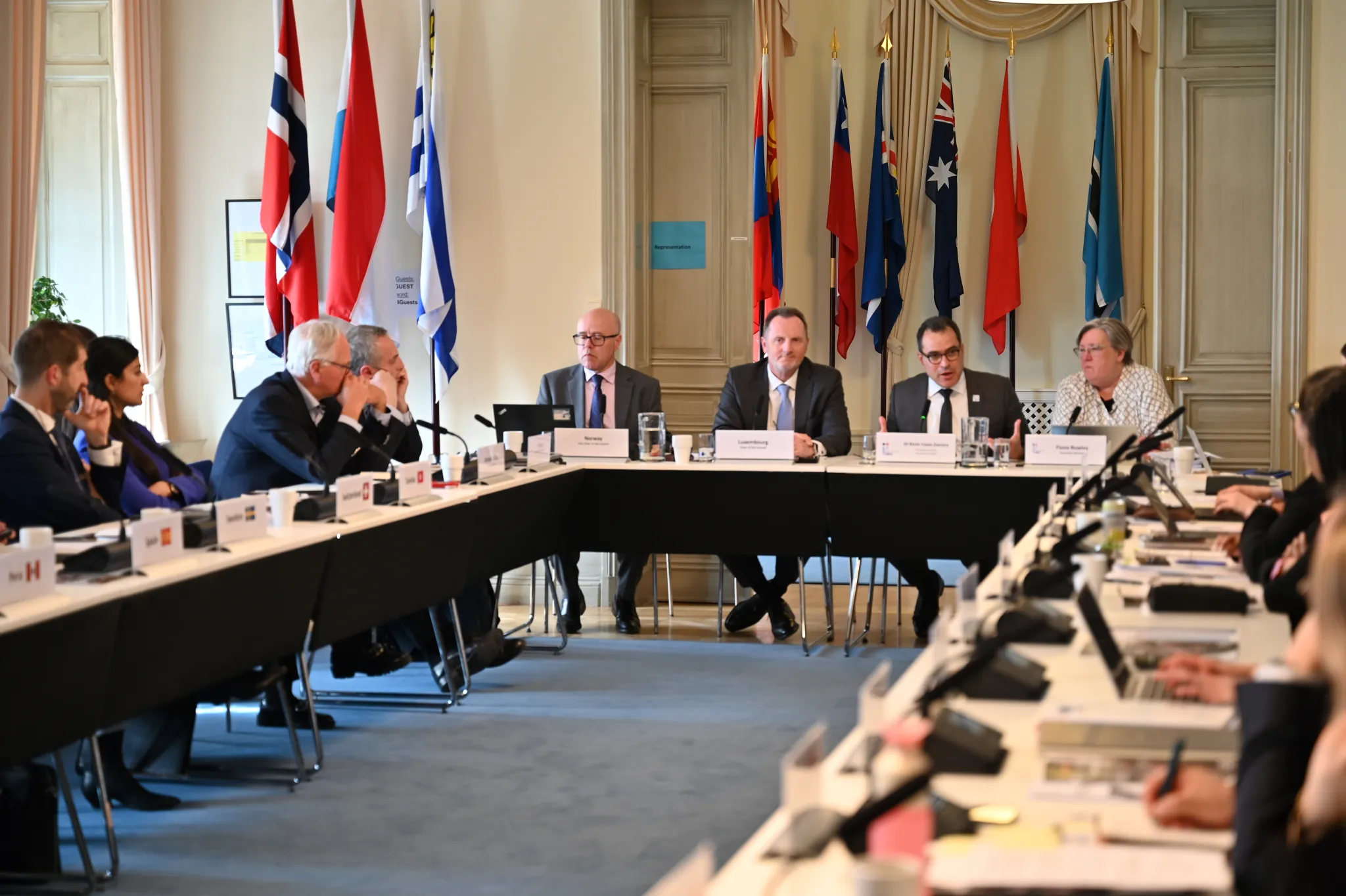
The deliberations revolved around the impact that recent global phenomena – from climate change to digital transformation and the elections super-cycle – have on the quality of democracy and how International IDEA aims to address the challenges and opportunities sparked by these major trends.
The program kick-started with the inaugural lecture of the Stockholm Series, a cooperation between Stockholm-based institutions with a focus on climate change and democracy. As part of the first of four lectures to be held this year, Jennie King, Director of Climate Policy and Research at the Institute for Strategic Dialogue in London, gave a briefing on the impact that a polarizing information environment has on the climate debate. She argued that this debate is part of a larger narrative on the general public’s loss of trust in democratic institutions and highlighted the importance of safeguarding information integrity amidst mis- and disinformation.
Given the ongoing Global Elections Super-Cycle, significant attention was given to International IDEA’s work on elections. Dr Seema Shah, Head of Democracy Assessment, along with Therese Pearce-Laanela, Peter Wolf, and Sead Alihodzic from the Electoral Processes team, presented some of the key developments and challenges with regard to the recent elections from around the world, using insights provided by the Democracy Tracker and drawing on the Institute’s experience to support the capacity of electoral stakeholders. Although this year’s elections take place in a challenging environment for democracy, many of them also carry the potential for democratic renewal and electoral innovation.
The update was followed by a briefing on democracy assessments. The Norwegian Ministry of Foreign Affairs shared key findings, learnings and recommendations from an assessment on the state of Norway’s democracy commissioned by the Norwegian Ministry of Local Government and Regional Development and carried out by the University of Oslo in 2023. The session was complemented by Dr Seema Shah’s presentation, which showcased tools and resources provided by International IDEA to facilitate similar processes, most notably the State of Democracy Assessment Framework.
Alberto Fernandez Gibaja, Head of Digitalization and Democracy at International IDEA, gave an overview of the initiatives, achievements and upcoming priorities of the recently launched workstream on the connection between digital issues and democracy. His presentation highlighted the need for the workstream to support democratic institutions and other stakeholders from digital threats, such as foreign information manipulation and interference, while harnessing the advantages of digitalization.
The program concluded with the meeting of the Council of Member States chaired by Luxembourg. At the meeting, the Council discussed topical institutional matters and appointed five new members to the Institute’s Board of Advisers. The Council will convene again on 6 December 2024.
Together, the briefings served as a deep dive into International IDEA's most recent initiatives. The discussions emphasized both the challenges ahead in maintaining democratic integrity amid the large global trends as well as the opportunities these trends provide for democratic institutions and the work of International IDEA.
